Barra – Memory and Landscape (Back to the Future)
As we sail into Castelbay a familiar environment gradually reveals itself. This is the island of my mother (nee. MacNeil) before she moved to Glasgow in the early 60s. And of my Grandparents and many generations before them, possibly as far back as the 13h Century. This is the island of childhood Summer holidays. I see the house my grandfather built, and the croft where my grandparents had sheep and hens, grew potatoes and carrots, and had a small clinker-built boat for lobster & crab fishing – a traditional island life, tough but mostly self-sufficient.
We are on Song of the Whale, a 74ft sailing boat equipped with hydro-phonic equipment that records and tracks the sounds of fish and sea mammals. I am with a group of artists, scientists and sailors who are passionate and critical about how we live in relation to our environment. As we sail we exchange ideas and observations. I begin to see how people respond to the same thing or place in different ways. This is an important aspect of the trip for me as it not only deepens my understanding of what I am looking at, but also highlights the complexity involved in the actual process of looking at an object, image or place.
Likewise it has also been the case that when expert knowledge is pitted against local knowledge that the two stories don’t match up! This makes me realise that notions of veracity and value may be more fluid than we often think.
As we motor towards our mooring place, the medieval Kisimul Castle becomes the dominant presence within the bay. It functions as a solid link to the past; a mnemonic object as well as a witness to the constant shifts and changes over time. Behind Castlebay, Ben Heavel rises up as a dramatic and protective backdrop. And between Heavel and the sea, houses, hotels and public buildings begin to describe the community that lives here.
As I absorb this scene, childhood memories unlock; climbing Heavel, fishing under the pier, digging for cockles, trying to forget stories about ghosts and ‘unexplained events’ before going to bed, being thrown about by giant Atlantic waves, testing boundaries, taking risks, experiencing nature first hand; seeing life and death interconnected. Reality was a natural yet heady mix of the real, the imagined and the magical as well as the religious and the superstitious.
Like history, knowledge and memory becomes inscribed in landscape and place. Multiple perspectives and bodies of knowledge become important aspects of culture, industry and progress. This raises interesting questions about what we leave behind as we move forward, or what we should take forward with us.
This connects with ideas about conservation, preservation, reconstruction and re-enactment – related to history, nature and culture. What is it that keeps a community alive? Is it the preservation of its history, culture and natural resources or is it the need to move forward and progress in order to survive? What is sacrificed in the name of progress? Or, as may also be the case, what is sacrificed in the name of conservation and protection? Can these two states successfully coexist and if so what takes precedence?
During the course of our journey so far, and our short stay on Barra, it became clear that these kinds of discussions and issues are very much alive and current.
In the Community Hall on Tuesday evening, there was a generous exchange of contemporary art presentations with traditional songs and dance; this included highland dancing and an energetic session by the women of the Waulking Songs group. There was also some discussion about the proposed designation of a cold-water coral reef near Barra as a Special Area of Conservation. This ‘protective act’ raised issues about indigenous rights to govern land and sea in relation to the rights of a distant beaurocracy. I also met several old friends of my mother, which for me made the event both a personal as well as public experience. On Wednesday some of us met with Barra & Vatersay Wind Energy Company. This was an interesting introduction to their plans for wind and wave energy and various other local sustainable energy initiatives and food projects. I began to see that this kind of development could lead to a twenty-first century version of self-sufficient living.
Islands such as Barra are involved in a slow, yet continual, state of invention and reinvention. In 2011 Barra coexists in many states of being, including occupying a rich ‘historical world’ – where innovation and determination have been a necessity for survival (Conquer or Die!)*, and a parallel ‘future world’, where new technology, renewable energy and sustainable farming mark a promising route forward.
In these island places we can dig deep into the past and learn from generations of people dating back to the Neolithic period – while at the same time we can also project, or calculate, into the future: digging and data, side-by-side. Looking back whilst looking forward: a Janus-like existence. An important stage, a testing ground. A balancing act, a leap of faith. An inspiration.
* Clan MacNeil motto: buaidh no bas, which translates from Scottish Gaelic as “to conquer or die”, or “victory or death”
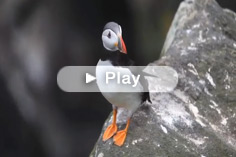

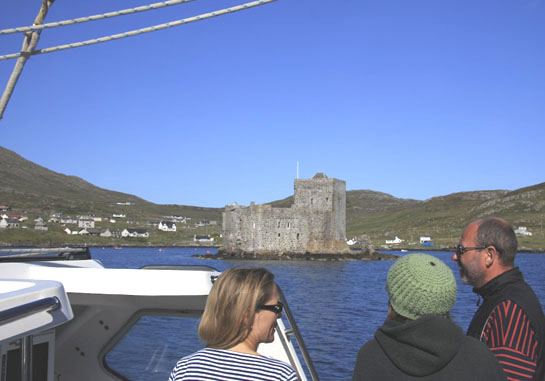
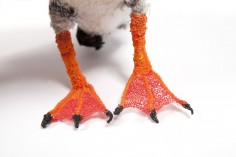
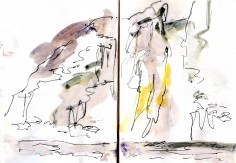
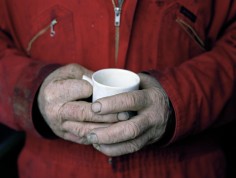
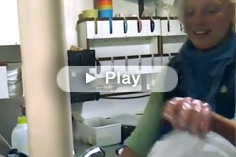
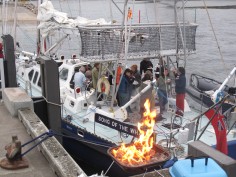
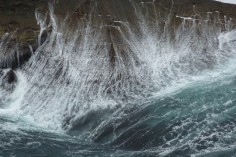
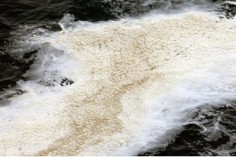
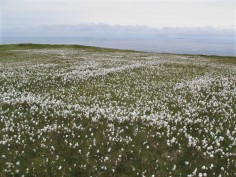
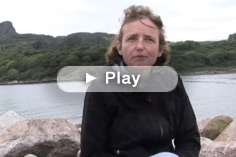
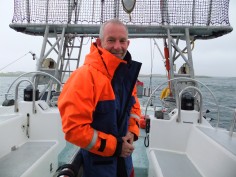








No Comments